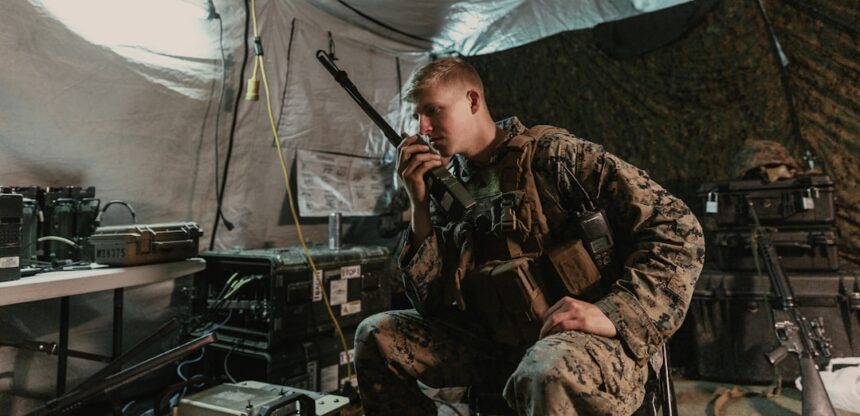Military intelligence serves as a cornerstone of national security, providing critical information that shapes strategic decisions and operational effectiveness. However, history has shown that intelligence failures can have catastrophic consequences, leading to miscalculations in warfare and significant loss of life. These failures often stem from a combination of flawed analysis, inadequate information gathering, and the inherent complexities of interpreting data in high-stakes environments.
Understanding the nature of these failures is essential for military organizations aiming to enhance their operational capabilities and prevent future missteps. The significance of military intelligence cannot be overstated; it is the lifeblood of informed decision-making in defense operations. Yet, despite its importance, there have been numerous instances where intelligence has failed to provide accurate assessments or timely warnings.
These failures not only undermine military operations but also erode public trust in defense institutions. As nations continue to navigate an increasingly complex global landscape, the lessons learned from past intelligence failures become more relevant than ever.
Key Takeaways
- Military intelligence failures have had significant impacts on operations throughout history.
- Historical examples, such as the Pearl Harbor attack and the 9/11 terrorist attacks, highlight the consequences of intelligence failures.
- Factors contributing to military intelligence failures include technological limitations, human error, and bias in analysis.
- The impact of intelligence failures on operations can result in loss of life, strategic setbacks, and damage to national security.
- Recent case studies, such as the failure to accurately assess the threat of weapons of mass destruction in Iraq, demonstrate ongoing challenges in military intelligence analysis.
Historical Examples of Military Intelligence Failures
Throughout history, there have been several notable examples of military intelligence failures that have had profound implications. One of the most infamous cases is the attack on Pearl Harbor in 1941. Despite having intercepted Japanese communications indicating a potential attack, U.S.
intelligence failed to piece together the information effectively. The result was a devastating surprise attack that led to significant losses for the U.S. Navy and altered the course of World War
Another significant example is the failure to predict the fall of the Berlin Wall in 1989.
Analysts had underestimated the growing discontent among Eastern European populations and overestimated the stability of the Soviet Union.
This failure not only affected military strategy but also reshaped geopolitical dynamics in Europe for decades to come.
Factors Contributing to Military Intelligence Failures

Several factors contribute to military intelligence failures, often intertwining to create a perfect storm of misjudgment. One primary factor is the sheer volume of information that intelligence agencies must sift through daily. In an age where data is abundant, distinguishing between relevant intelligence and noise becomes increasingly challenging.
Analysts may become overwhelmed, leading to cognitive biases that skew their interpretations and conclusions. Additionally, organizational culture plays a significant role in shaping intelligence outcomes. In some cases, a culture that discourages dissenting opinions or critical questioning can lead to groupthink, where analysts conform to prevailing narratives rather than challenging assumptions.
This lack of diversity in thought can result in blind spots that compromise the accuracy of intelligence assessments. Furthermore, bureaucratic inefficiencies can hinder timely information sharing among agencies, exacerbating existing problems.
Impact of Military Intelligence Failures on Operations
| Intelligence Failure | Impact on Operations |
|---|---|
| Lack of timely information | Delayed decision-making and response time |
| Inaccurate intelligence | Misguided operations and resource allocation |
| Failure to anticipate enemy movements | Increased risk to troops and mission failure |
| Insufficient analysis of data | Missed opportunities and strategic errors |
The repercussions of military intelligence failures extend far beyond immediate operational setbacks; they can alter the trajectory of entire conflicts and influence international relations. When intelligence fails, military operations may be misaligned with actual threats, leading to wasted resources and missed opportunities. For instance, during the Iraq War, flawed intelligence regarding weapons of mass destruction led to a protracted conflict that strained U.S.
military resources and credibility. Moreover, intelligence failures can have lasting psychological effects on military personnel and civilian populations alike. Soldiers may experience diminished morale when they perceive that their leaders are making decisions based on inaccurate information.
Civilians may lose faith in their government’s ability to protect them, leading to increased unrest and instability. The long-term consequences of these failures can ripple through societies, affecting political landscapes and international alliances.
Case Studies of Recent Military Intelligence Failures
In recent years, several high-profile military intelligence failures have underscored the ongoing challenges faced by defense organizations. One such case is the U.S. withdrawal from Afghanistan in 2021. Intelligence assessments underestimated the speed at which the Taliban would regain control over the country following the withdrawal of U.S. forces. This miscalculation resulted in chaotic scenes at Kabul airport as thousands attempted to flee, highlighting a significant breakdown in situational awareness. Another example is the ongoing conflict in Ukraine, where initial assessments underestimated Russia’s military capabilities and intentions. Analysts failed to predict the scale and ferocity of Russia’s invasion in 2022, leading to a delayed response from NATO allies. This failure not only impacted military readiness but also raised questions about the reliability of intelligence-sharing mechanisms among allied nations.
The Role of Technology in Military Intelligence Failures

As technology continues to evolve, it plays a dual role in military intelligence—both enhancing capabilities and introducing new challenges. On one hand, advancements in surveillance technologies, data analytics, and artificial intelligence have revolutionized how intelligence is gathered and processed. These tools can provide unprecedented insights into enemy movements and intentions, potentially improving decision-making.
However, reliance on technology can also lead to overconfidence in automated systems and algorithms. Analysts may place undue trust in data-driven assessments without critically evaluating their context or limitations. Additionally, cyber threats pose significant risks to intelligence operations; adversaries can exploit vulnerabilities in technology to manipulate or disrupt information flows.
As military organizations increasingly integrate technology into their intelligence frameworks, they must remain vigilant about its potential pitfalls.
Human Error and Bias in Military Intelligence Analysis
Human error remains a significant factor contributing to military intelligence failures. Analysts are not infallible; they are subject to cognitive biases that can distort their perceptions and judgments. Confirmation bias, for instance, may lead analysts to favor information that supports their pre-existing beliefs while disregarding contradictory evidence.
This tendency can result in skewed assessments that fail to capture the full scope of a situation. Moreover, time pressure often exacerbates these issues. In high-stakes environments where decisions must be made rapidly, analysts may rely on heuristics or mental shortcuts that compromise thoroughness and accuracy.
The urgency to produce actionable intelligence can lead to oversights or misinterpretations that have dire consequences on the battlefield. Recognizing these human factors is crucial for developing strategies that mitigate their impact on military intelligence analysis.
Strategies for Improving Military Intelligence Analysis
To address the challenges associated with military intelligence analysis, organizations must adopt comprehensive strategies aimed at enhancing accuracy and effectiveness. One key approach is fostering a culture of critical thinking within intelligence agencies. Encouraging analysts to question assumptions and consider alternative perspectives can help mitigate groupthink and promote more robust assessments.
Investing in training programs that emphasize analytical skills and cognitive biases is also essential. By equipping analysts with tools to recognize their own biases and improve their decision-making processes, organizations can enhance the quality of their intelligence outputs. Additionally, promoting collaboration among different agencies can facilitate information sharing and create a more holistic understanding of complex situations.
Ethical Considerations in Military Intelligence Analysis
Ethical considerations play a vital role in military intelligence analysis, particularly regarding privacy rights and civil liberties. As technology advances, the potential for surveillance and data collection raises important questions about the balance between national security and individual freedoms. Military organizations must navigate these ethical dilemmas carefully to maintain public trust while ensuring effective intelligence operations.
Furthermore, ethical considerations extend to how intelligence is used in decision-making processes.
Establishing clear ethical guidelines for intelligence analysis can help safeguard against these risks while promoting transparency and integrity within military operations.
The Importance of Learning from Military Intelligence Failures
Learning from past military intelligence failures is crucial for improving future operations and preventing similar mistakes from occurring again. Analyzing historical cases provides valuable insights into what went wrong and why certain decisions were made under specific circumstances. By conducting thorough post-mortems on failed operations, military organizations can identify patterns and develop strategies to address recurring issues.
Moreover, fostering an environment that encourages open dialogue about failures can help dismantle stigmas associated with mistakes within military culture. When personnel feel safe discussing errors without fear of retribution, they are more likely to contribute valuable lessons learned that can inform future practices. Emphasizing continuous improvement through reflection and adaptation is essential for building resilient military intelligence capabilities.
Moving Forward from Military Intelligence Failures
In conclusion, military intelligence failures present significant challenges that require ongoing attention and adaptation from defense organizations worldwide. By understanding historical examples, recognizing contributing factors, and implementing strategies for improvement, military leaders can enhance their analytical capabilities and operational effectiveness. The integration of technology must be approached with caution, ensuring that human judgment remains central to decision-making processes.
As nations navigate an increasingly complex global landscape marked by rapid technological advancements and evolving threats, learning from past failures becomes imperative for future success. By fostering a culture of critical thinking, ethical considerations, and continuous improvement within military intelligence analysis, organizations can better prepare themselves for the challenges ahead while safeguarding national security interests.
In the realm of military operations, intelligence analysis is a critical component that can significantly influence the outcome of strategic decisions. However, history has shown that failures in military intelligence analysis can lead to dire consequences. An insightful article discussing these failures can be found on the website “In The War Room.” This article delves into various instances where intelligence missteps have occurred, analyzing the factors that contributed to these failures and the lessons learned from them. For a deeper understanding of this topic, you can read the full article by visiting In The War Room.
🔍WATCH THIS! The Secret Weakness That Will Break The US Military🧭
FAQs
What are military intelligence analysis failures?
Military intelligence analysis failures refer to instances where the intelligence community fails to accurately assess and predict the intentions, capabilities, or actions of an adversary or potential threat.
What are some examples of military intelligence analysis failures?
Examples of military intelligence analysis failures include the failure to anticipate the 9/11 terrorist attacks, the inaccurate assessment of Iraq’s weapons of mass destruction prior to the 2003 invasion, and the failure to predict Russia’s annexation of Crimea in 2014.
What are the consequences of military intelligence analysis failures?
The consequences of military intelligence analysis failures can be severe, leading to strategic miscalculations, policy missteps, and even military engagements based on faulty intelligence. These failures can also erode public trust in the intelligence community and have political ramifications.
What factors contribute to military intelligence analysis failures?
Factors contributing to military intelligence analysis failures can include cognitive biases, incomplete or inaccurate information, groupthink within the intelligence community, and the difficulty of predicting human behavior and complex geopolitical dynamics.
How can military intelligence analysis failures be mitigated?
Military intelligence analysis failures can be mitigated through the use of rigorous analytical methods, diverse perspectives within the intelligence community, independent review processes, and a willingness to challenge assumptions and consider alternative scenarios. Continuous learning and adaptation are also crucial in improving intelligence analysis.




